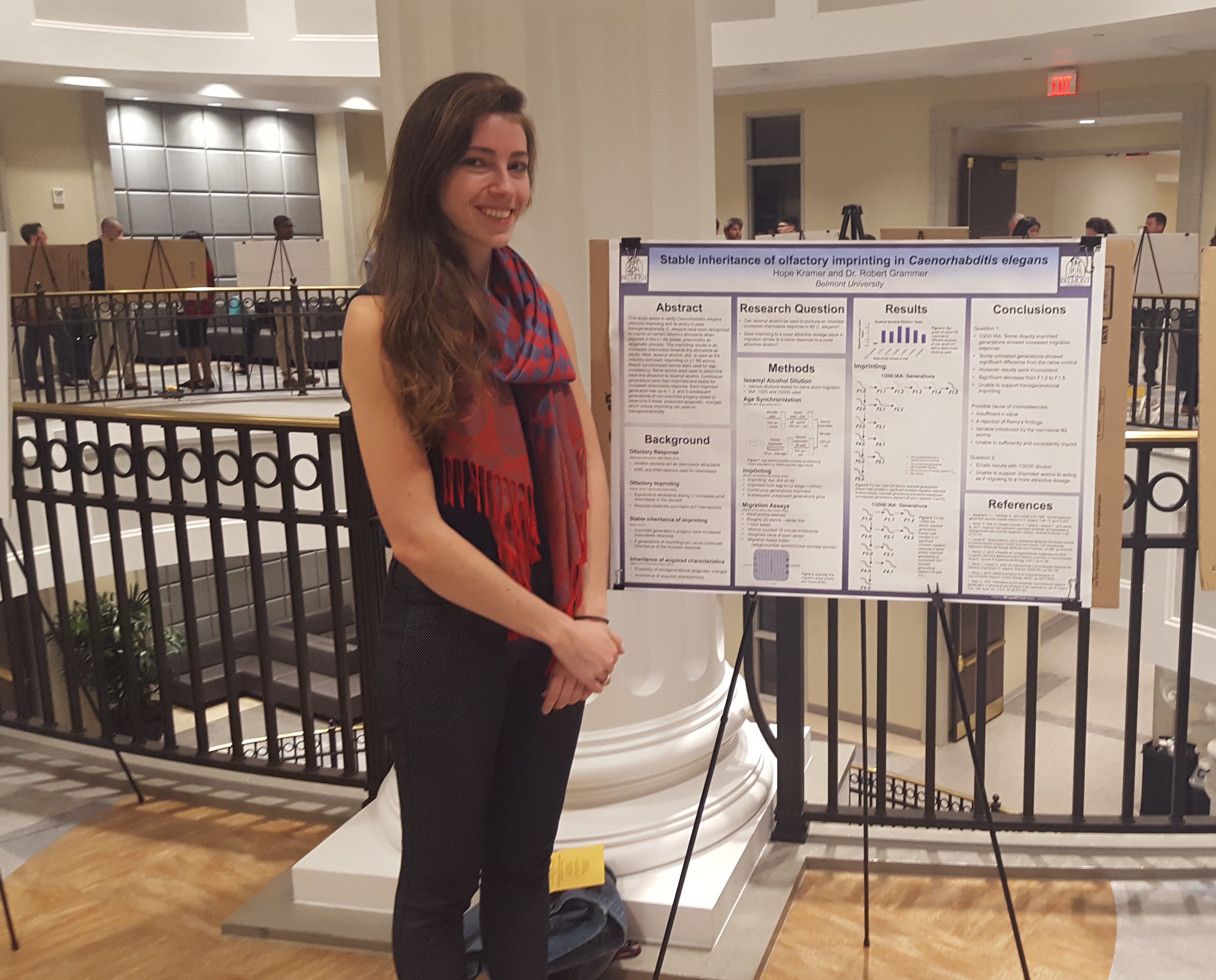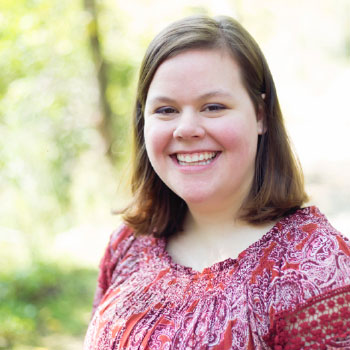“Normalcy is the antithesis of evolution,” said Siddhartha Mukherjee in his book about the history of genetics, “The Gene.” This is where Hope Kramer, a senior at Belmont University in Nashville, Tennessee, who is studying biochemistry and molecular biology (BMB), drew her inspiration from.
Kramer’s thesis on transgenerational epigenetics sprang from her interest in the writings of Mukherjee’s, which she read during her junior year. “One section I found fascinating was what is now known as the Dutch Hunger Winter,” she said. From November 1944 to April 1945, the German-occupied areas of the Netherlands were in a famine. Those areas were cut off from food and supplies due to a blockade. “Over the next several decades’ survivors of this famine were studied and kept track of,” Kramer explained. “Expectedly, the metabolisms of survivors of the famine were changed for the rest of their lives. Unexpectedly, so were the metabolisms of many children and grandchildren that were also studied. This is a really classic example of transgenerational epigenetics.”
While this is a foreign language to most, Kramer is fascinated with this revolutionary idea in genetics. “When I heard this, I was blown away by both the controversial nature of this subject and the similarities it has to some previously debunked scientific ideas from centuries ago. My thesis then is mapping the history from those old ideas until now and our current understanding.”
The Belmont University senior is no stranger to complicated scientific ideas. In fact, she chases after them. Two summers ago, she traveled to Scotland to study at the University of Glasgow, during which she worked full-time in a microbiology lab which focused on the identification of bacterial thermophiles in the urban environment. “One goal of my research was to collect, isolate, sequence, test for antibiotic resistance, determine pathogenicity and culture thermophilic bacteria from home environments,” said Kramer. The experience was extremely eye-opening for her because of her extensive responsibilities. “Doing my own research and being responsible for the entire project helped me identify that I have a disposition for research, including the joy of seeing the often monotonous routine transform into a thrilling discovery.”
The study abroad program was not the end of real-life learning for Kramer. She recently participated in a research program with St. Jude Children’s Hospital in Nashville, where she worked full time in an infectious diseases lab in the Pediatric Oncology Education program. “Under Dr. Jason Rosch, I was part of a project to map the genetic pathways of antibiotic resistance in Streptococcus pneumonia,” said Kramer. Her duties were extensive in this role, as well. “I was primarily responsible for in-vitro testing, passaging, genome extractions, PCR and DNA recovery.” In addition, she attended a daily lecture series and had to prepare and present a written report.
However, she didn’t stop at just what was expected of her; she also took on some volunteer opportunities while at St. Jude’s. During her time there she began to realize that she loves “space where research directly applies to clinical practice” and that she has the freedom to pursue all of her interests–patient care, research and health disparities. Spending the summer at St. Jude Children’s Hospital opened her eyes to all the possibilities of her future path. “Throughout my life, I received many privileges and opportunities, but my time at St. Jude’s has opened my world to potential like no other experience ever has,” she said.
In addition to her research work, Kramer interned at Siloam, a health care clinic in the Nashville area for the uninsured and refugees. She worked at the clinic for an entire year and fell even more in love with her position every day. Kramer was responsible for training and coordinating volunteers, interpreters and patient schedules. She also participated in the client’s referral appointments, led health classes and gained more responsibility to aid in brainstorming program revitalization. “I felt this would help me solidify if I really am drawn to a medical career,” she said. “Quickly, I saw the complexities of the system as well as the emotional toll that it takes on participants and workers alike.”
Kramer struggled through some challenges but valued the time with patients and staff at the clinic, which was her favorite part of the internship and played an instrumental role in shaping her new career goals. “Going into college, I wanted to pursue my Ph.D. in medical research after graduating, but now I am planning on pursuing an M.D.,” she said.
In the midst of all her internships, research programs and classes, she was asked to be a student representative on her school’s honor council. “I got started with it because the director asked me if I was available and interested as they typically have a science student representative, among a few other departments, along with a variety of faculty,” Kramer said. She was very interested in being a part of the council to express her concerns about the failings she had seen as a student in the department. “I primarily sit on the council, which meets roughly once a month, and review proposed thesis projects and potential proposed unique majors–a perk of the honors program,” she said. “I have also been able to raise my concerns and participated in some talks on how to revamp the program, to a more limited extent.”
Outside of the classroom, Kramer is a self-proclaimed avid runner and just recently ran her first half-marathon in December. She enjoyed it so much that she already has another planned for April. In addition to running and yoga, she relishes in the visual arts. “I appreciate the expression and stress relief I find in painting and drawing,” she said. “I am rusty, but spray paint art is another excellent, if messy, addition to that hobby.” When she isn’t painting, running or doing the downward dog, she participates in a student-led book club on campus, a pre-med club and the biochemistry and molecular biology club, the Reformed University Fellowship (RUF), a university ministry and she still volunteers at Siloam from time to time.
With one semester of college left, Kramer is looking toward her future. She is currently working on numerous medical school applications. “I will hopefully be accepted and immediately start. However, if I do not get in this year, I will take a year to apply again and improve my application.”

















